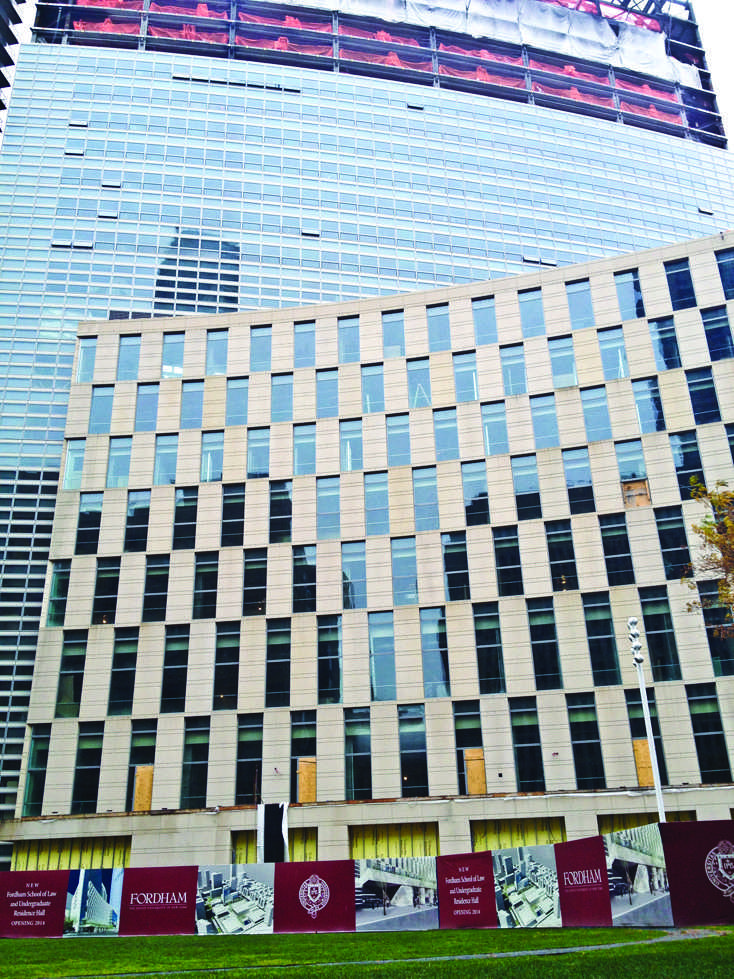Faculty Speak Out Against Salary Agreement
December 12, 2012
Fordham College at Lincoln Center’s (FCLC) Faculty Senate reached an agreement with the university administration over salary raises for the 2012-2013 academic year, almost seven months after raises in faculty salary and benefits are traditionally finalized.

The across-the-board raise of 3.25 percent in faculty salaries, along with a merit raise of $800 per year for half of tenured faculty and a one-time bonus of $400, were announced in the Nov. 9 Senate meeting, according to the meeting’s published minutes.
Subsequently, A petition was drafted by members of the faculty to strongly encourage the Senate to hold the administration accountable for its refusal to compromise on a number of issues in reaction to the Senate’s agreement to a compromised set of raises and benefits.
The petition specifically mentioned four areas of action the signees expect the Senate to take in response to the administration’s proposals, including higher merit raises, the implementation of a new maternity leave program and on-site child-care facilities as well as fighting cuts to academic programs.
Along with the salary agreement came a Senate motion condemning the administration’s decision to allocate “better than budget revenues” to Fordham’s building fund rather than to faculty salaries.
“In the context of the President of the University’s priority on faculty development and program development, the Senate believes that it is the responsibility of the university to raise adequate funds for the endowment through traditional fundraising, and that it is irresponsible and harmful to the university to allocate tuition-generated surpluses now and for the foreseeable future to supplement capital reserve funds,” the Senate motion said.
Andrew Clark, professor of French and comparative literature and former head of the Senate’s salary and benefits committee, said, “Over the last seven years, the university has put away $123 million in better-than-budget income, and this money is about 80 percent coming from tuition. So it’s coming from students, and it’s coming from faculty work.”
“In the foreseeable future, all profits will go into the campus facility reserve, salary raises will be between 1.5 and 3 percent, which means faculty will see salary raises below the cost of living increases,” Clark said.
The faculty’s demands at the beginning of negotiations amounted to $56,000 more than the administration’s offer and included a workload relief program benefit for faculty to replace the current maternity leave with a non-gender, non-biologically related maternity leave. That demand, however, was rejected, and through negotiations brought down to the final compromise equal to half of the difference between the faculty and administration offers.
To explain the meaning of the motion and the consequences of the salary negotiations and campus facility reserves, The Observer spoke with Andrew Clark, associate professor of French and comparative literature and former head of the Senate’s salary and benefits committee. John Lordan, senior vice president, chief financial officer and treasurer of Fordham, did not return phone calls from the Observer requesting comment, and university spokesperson Robert Howe said he had no information on the salary negotiations.
According to Clark, the campus facility reserves are meant to target money from unexpectedly high revenues toward funding Fordham’s multiple expansion projects at the Lincoln Center and Rose Hill campuses.
Clark said his concerns stem from the consequences of the raises themselves and the establishment of a campus facility reserve.
While salaries are rising at or below the cost of living, the faculty’s workload is increasing. “Since 2008, class sizes have grown,” Clark said, “but Fordham has not been hiring more, so the workload is increasing, but the pay is not.”
According to Clark, when revenues are targeted toward campus facilities instead of reinvestment in faculty, the university as a whole suffers.
“It will affect faculty morale and competitiveness, and students will be affected when faculty move to other positions or farther away to live where they can afford to, and so they [professors] will not be on campus as much,” Clark said. “Faculty engagement with the institution will also suffer, and therefore the quality of programs and quality of education.
“That money is not being invested in faculty compensation, which would allow faculty to spend more time for teaching and research, helping with recommendations, helping students with their future careers. The university has raised enrollment without filling teaching lines, they are hiring more adjunct professors without the same long-term commitments to the university and students,” Clark said.
Students specifically will be negatively affected, according to Clark. “You’ll see more cancelled courses and lower diversity in courses, longer lines to meet with advisors who have more advisees and a general absence of faculty on campus as faculty can no longer afford the transit in and out of the city. It becomes difficult to offer new programs when you are understaffed. Department budgets will be cut so you’ll see less lectures and co-sponsoring with Student Activities.”
“The main reason students do or do not come here is based on the quality of programs,” Clark said.
Clark also discussed the disconnect between how the university community (including students and administrators) views professors’ work and what Clark sees as the reality. “I think there is a sense that faculty don’t really work, we teach 8 hours a week, have summers off,” Clark said. “There is a complete incomprehension of the value of the faculty or what they do, and the cost of living in New York City is really high. Being a faculty member here is wonderful, students are loved by faculty, but it is becoming increasingly difficult to live here.”
“It’s really about a basic level of respect, working together in this institution,” Clark said. “We help generate this profit in our labor, we should be at least getting the cost of living increases.”











